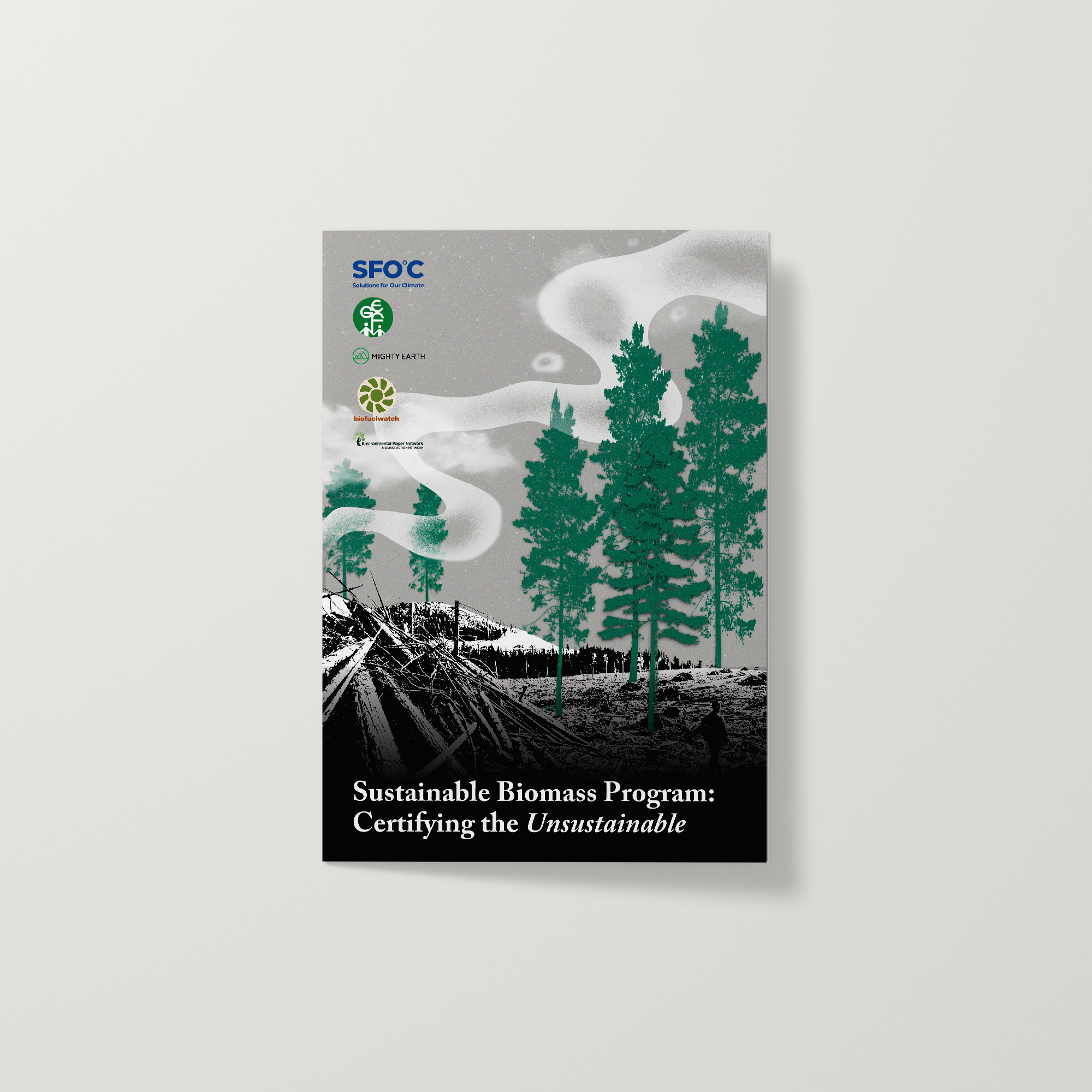
Executive summary
Key Takeaways
The recently adopted Global Biodiversity Framework (GBF) and progress with the Paris Agreement call for enhanced coherence to reach climate and biodiversity targets, as enshrined in GBF Target 8 and the first Global Stocktake (GST) of 2023
Contrary to the latest science, however, many climate pledges include burning forest biomass for energy as a mitigation option; this is a false solution with demonstrated negative consequences for the climate and biodiversity
Under the Intergovernmental Panel on Climate Change (IPCC) Guidelines for carbon accounting, emissions from burning biomass are not calculated in the Energy sector, misleading countries to promote biomass as carbon-neutral energy
Developed countries in particular heavily incentivize the use of biomass, sometimes on greater levels than genuine renewables, such as wind and solar, as exemplified in the case of South Korea
Support for biomass is the textbook case of subsidies harmful for biodiversity, justified only by abusing the carbon accounting loophole, and should be subject to a substantial phase-out starting 2025 per GBF Target 18
Policy Recommendations
Parties to the GBF should designate direct and indirect subsidies for forest biomass as the most harmful incentives for biodiversity by 2025 and substantially phase out by 2030 per Target 18 of the GBF. Subsidies for the worst types of biomass, such as coal-and-biomass co-firing and burning of primary woody biomass, should be immediately eliminated. The updated National Biodiversity Strategies and Action Plan (NBSAP) should include time-bound plans for the removal of all harmful incentives
Parties to the Paris Agreement should fully disclose CO2 emissions from burning biomass in the Energy sector in the first Biennial Transparency Report (BTR). The updated NDC for 2035 should exclude woody biomass from the mitigation options, and the omission of CO2 emissions from biomass in the Energy sector accounting should not be counted as emissions reduction. Moving forward, Parties should engage the UNFCCC Secretariat and IPCC to properly account for biomass emissions as fuel combustion activities









![[Webinar] International webinar on enhancing due diligence of forest risk commodities' supply chains in Asia](https://content.sfoc.tapahalab.com/images/research/sjGudme.jpg)



![[토론회] 한국형 녹색분류체계(K-Taxonomy), 무엇이 녹색경제활동인가](https://content.sfoc.tapahalab.com/images/research/bn8jdme.jpg)

![[Webinar] Palm Oil based Biofuels Policy and Socio-Environmental Impacts in Asia](https://content.sfoc.tapahalab.com/images/research/BOpldme.jpg)






